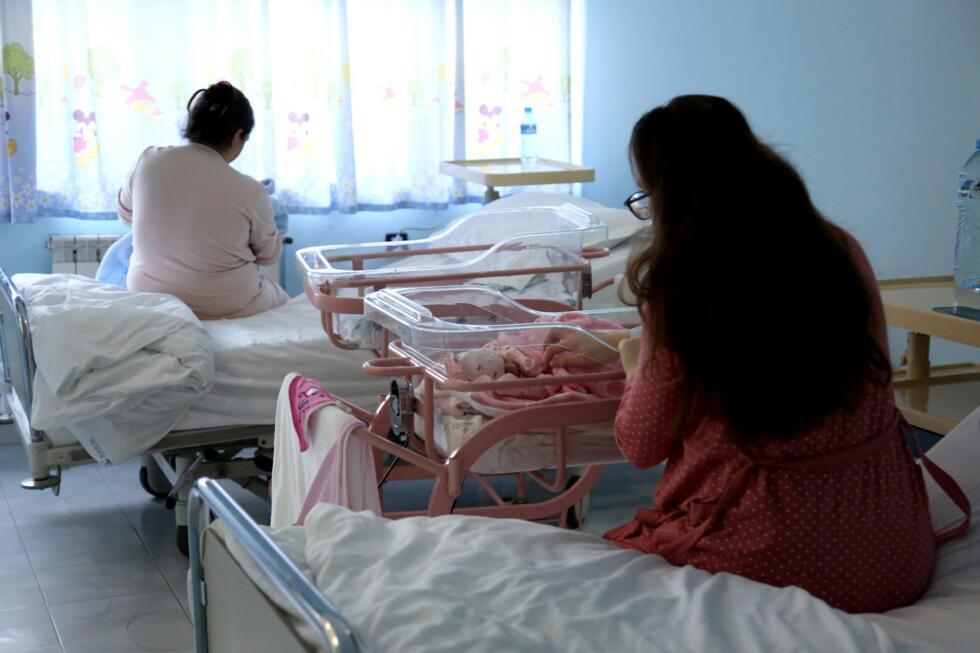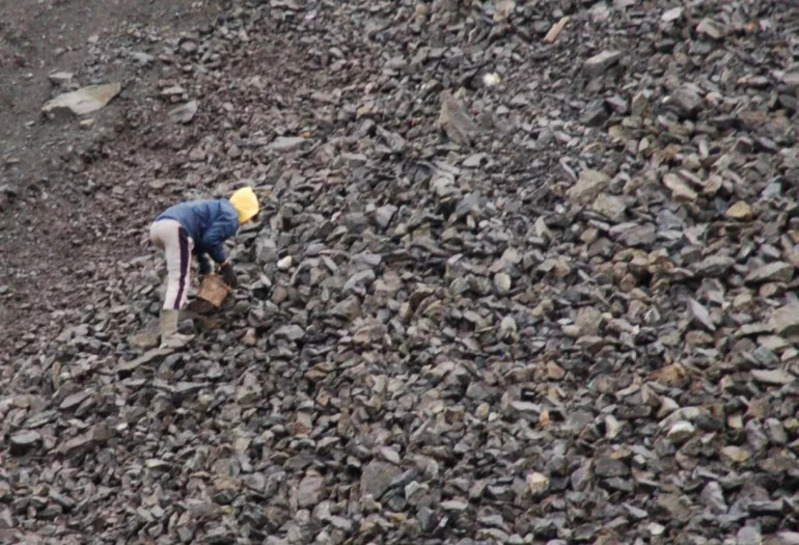Reproductive Rights and Gender Bias in Albania: UN Committee Raises Concerns
Published on 14 Mar 2025, 11:33 AM
The Human Rights Committee reviewed Albania on its ICCPR application
 Author: Adnan Beci/AFP via Getty Images
Author: Adnan Beci/AFP via Getty Images
On March 11 and 12, 2025, the United Nations Human Rights Committee conducted its review of Albania in Geneva as part of its periodic assessment of the country's compliance with the International Covenant on Civil and Political Rights (ICCPR). This session provided an opportunity to evaluate progress, challenges, and gaps in Albania’s human rights framework, focusing on judicial independence, anti-corruption efforts, migration policies, reproductive rights, prison conditions, human trafficking, and the treatment of vulnerable groups, including children and minorities.
The Committee welcomed Albania’s large and high-level delegation, composed of 29 representatives, including government officials, legal experts, and members of independent institutions. The delegation provided detailed responses on recent legislative reforms, institutional improvements, and national strategies aimed at strengthening human rights protections. However, the session also highlighted persistent challenges, particularly concerning the agreement with Italy on migrant reception centers, enforcement of anti-corruption measures, access to justice, sex-selective abortions, prison conditions, and human trafficking. The Centre noted that civil society engagement remained limited, with no participation from human rights defenders at the Committee’s session.
A Positive Step: Establishment of National Mechanisms for Monitoring UN Human Rights Recommendations
Albania has established institutional mechanisms to track and implement recommendations from UN human rights bodies, including the Committee’s concluding observations and views under the First Optional Protocol (OP1). The People’s Advocate (Ombudsman) and the Commissioner for Protection Against Discrimination play key roles in ensuring compliance with international human rights obligations. Additionally, the Parliamentary Committee on Legal Issues, Public Administration, and Human Rights oversees the follow-up and integration of recommendations into national policies and legislation.
To strengthen coordination, the government has launched an inter-institutional monitoring platform, systematically tracking recommendations from 26 independent institutions. Despite these mechanisms, the Committee expressed concerns about delays in implementing recommendations and the lack of public transparency in how commitments are enforced. It also raised questions about the availability of UN recommendations in Albanian and their dissemination to civil society. The lack of clear institutional follow-up on OP1 decisions remains a significant gap requiring further action.
Abortion Rights in Albania: Legal Reforms and Concerns Over Sex-Selective Abortions
 Author: Adnan Beci / AFP
Author: Adnan Beci / AFP
The Human Rights Committee acknowledged Albania’s efforts to expand reproductive rights but raised concerns about the persistence of sex-selective abortions, which reflect deep-rooted gender preferences in society. The Committee noted that Albania’s proposed legal reform seeks to extend the legal window for abortion from 12 to 14 weeks, offering women more time to make informed decisions. However, this change has sparked debate over whether it could inadvertently increase sex-selective terminations, disproportionately affecting female fetuses. While a natural birth ratio is around 105 male births per 100 female births, Albania has reported figures as high as 111-112 male births per 100 female births, suggesting potential prenatal gender selection.
The Committee questioned what safeguards Albania has in place to prevent such discrimination, including whether the law explicitly prohibits prenatal sex selection and whether medical professionals are trained to discourage gender-biased terminations. Additional concerns were raised about access to reproductive healthcare, particularly in rural areas, where economic and social barriers may limit women’s ability to make autonomous choices.
In response, the Albanian delegation reaffirmed the government’s commitment to reproductive rights, stating that sex-selective abortion is not legally permitted in the country. They explained that the extension of the abortion window was based on medical recommendations to improve maternal healthcare rather than facilitate gender-based terminations. The delegation also highlighted awareness campaigns and legal measures aimed at combating gender discrimination in reproductive decisions.
Italy-Albania Migration Agreement: Human Rights Concerns and Government Assurances
The Human Rights Committee raised serious concerns regarding the Italy-Albania agreement, which establishes migrant reception centers on Albanian territory to process and house asylum seekers arriving in Italy. The agreement, which involves Italy managing two designated areas within Albania—one for identification and another for accommodation—has sparked scrutiny over potential human rights violations.
The Committee questioned the legal jurisdiction under which these migrants would fall, as the reception centers are managed by Italy but located within Albanian borders, raising concerns about accountability and adherence to European and international human rights laws. The Committee also inquired whether migrants would have proper access to legal aid, asylum procedures, and appeal mechanisms and whether independent monitoring bodies would oversee the conditions in these facilities.
The Albanian delegation reassured the Committee that the agreement aligns with international human rights standards and supports Albania’s European integration efforts. They emphasized that the centers would be under Italian jurisdiction, adhering to Italian and EU asylum laws, with a strict limit of 3,000 migrants at a time. Security would be shared, with Italy managing internal operations while Albania handled external safety and transport. They also stated that medical care, including hospital treatment, would be covered by Italy.
Behind Bars, Beyond Reform: Albania’s Unfinished Business on Prison Conditions
The Committee also raised serious concerns about allegations of ill-treatment in prisons and police custody, lack of medical care, overcrowding, and long pretrial detention. Questions were also raised about whether detainees, especially in the early stages of arrest, had guaranteed access to legal counsel and prompt medical examinations.
The Albanian delegation stated that prison overcrowding had been eliminated, citing an occupancy rate reduced to 78.9% in 2025 and improvements in prison infrastructure and rehabilitation programs, which had increased by 145%. However, they failed to provide data on complaints of ill-treatment, their outcomes, or clear mechanisms guaranteeing access to lawyers and doctors at the moment of arrest.
While some cases, such as the prison murder case and the Claudia Rasha killing by police, were addressed with mentions of ongoing investigations and a conviction, broader systemic issues around abuse prevention and accountability remained unresolved.
Trafficking and Child Exploitation in Albania: Promises Made, Protections Missing
 Author: UNICEF/ALB/2018/Fatos Baxhakau
Author: UNICEF/ALB/2018/Fatos Baxhakau
The Committee pressed Albania on human trafficking, child labor, and the treatment of children in conflict with the law, pointing out that despite action plans, the country remains a source, transit, and destination for trafficking, especially for sexual exploitation and forced labor. They urged for a specific law to protect trafficking victims, clearer access to compensation, and more proactive investigations.
Albania admitted that a dedicated anti-trafficking law is still "under consideration", though no timeline was provided. The delegation highlighted training for judges, prosecutors, and police and confirmed that 61 cases of child labor in trade and services were identified in 2024. They also pointed to juvenile justice reforms, such as specialized centers in Kavaja housing 30 minors, and efforts to use alternatives to detention.
However, many questions remained unanswered. The government offered no data on trafficking convictions, no details on how victims can access compensation, and no concrete measures to address informal child labor and early marriage in marginalized communities.
Watch the review session again here (Day 1) and here (Day 2).
Disclaimer: Transcripts of the dialogue available here powered by WIPO Speech-to-Text served as the main source of the presented article. While all the information was carefully checked, please refer to the audio or UN WebTV for an official version of the dialogue.
Recommendations of the Human Rights Committee
The Concluding Observations on Albania's third periodic report were released on 28th March 2025. The State party is requested to provide, by 28th March 2028, information on the following recommendations:
Fight against impunity and past human rights violations
The State Party should:
The State party should redouble its efforts to expedite and finalize the investigations of the January 2011 demonstrations, identify and prosecute the perpetrators, and if they are convicted, impose penalties commensurate with the gravity of the offences, and ensure access to effective remedies for victims and their families. The State party should also expand the legislative and institutional framework to comprehensively secure the rights to the truth of families of victims of enforced disappearance during the dictatorship; to have the remains of their loved ones identified and returned to them; to have access to justice and obtain reparation, and to guarantee non-repetition, and foster and preserve memory. The State party should consider granting victim status to families of forcibly disappeared persons by expressly recognising victims of enforced disappearances as beneficiaries, without requiring evidence of political persecution.
Treatment of migrants, refugees, and asylum-seekers
The State Party should:
(a) The detention of migrants and asylum-seekers is only used as a measure of last resort and is reasonable, necessary and proportionate, in accordance with the Committee’ s general comment No. 35 (2014) on liberty and security of person, and that alternatives to detention are used in practice, and ensure that children are not deprived of their liberty for immigration related purposes;
(b) The principle of non-refoulement is upheld in practice, ensuring that all persons seeking international protection have access to an independent judicial appeals mechanism with suspensive effect against negative decisions;
(c) Free legal aid is accessible in practice in procedures for the individualized determination of refugee status or of eligibility for international protection.
Right to a fair trial and independence of the judiciary
The State Party should:
The State party should adopt a comprehensive strategy to address the backlog of cases, in particular at the High Court, the Appeal Court and the Administrative Court of Appeal, and reduce the length of proceedings to ensure the right to a fair trial without undue delay, in accordance with article 14 of the Covenant and the Committee’s general comment No. 32 (2007) on the right to equality before courts and tribunals and to a fair trial. It should also:
(a) Ensure the necessary competence and independence of all members of the High Judicial Council and the High Prosecutorial Council, including by applying the same standards of background checks and asset declarations used for magistrates to non-magistrates;
(b) Increase the financial, technical and human resources provided for the administration of justice and support its effective and timely functioning and ensuring its accessibility to persons living in rural and remote areas.
Here, you can find all the recommendations given by the Committee in the Concluding Observations.
The follow-up report of Albania on the implementation of recommendations is due in 2028. The next list of issues will be adopted in 2031, and the next periodic report is due in 2033.
 Author: Adnan Beci/AFP via Getty Images
Author: Adnan Beci/AFP via Getty Images



